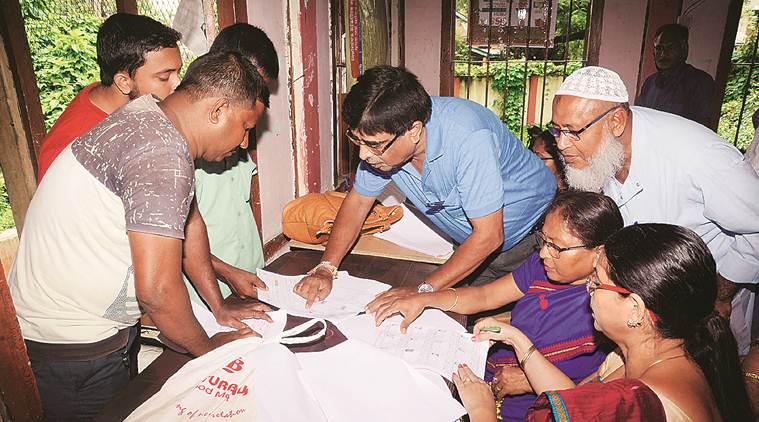While the tribunal is required to give its decision within 120 days from the date of production of records, the legal battle to prove citizenship often takes more than 120 days.

“As long as the case is pending before the tribunal, an individual cannot be treated as a foreigner,” Assam Chief Minister Sarbananda Sonowal has said. The state government has also assured legal assistance through the district legal services authority.
Assam has 100 tribunals in 33 districts, and at least 200 new tribunals are expected to be operational by September 1. Solicitor General Tushar Mehta had told the Supreme Court in May that the Assam government will set up 1,000 tribunals with assistance from the Centre in a phased manner.
ExplainedWhat if appeal is not filed in 120 days?
In case a person excluded in NRC does not appeal before the tribunal within the period of 120 days, the district magistrate may refer a case to the tribunal and seek its opinion on whether the person concerned is a foreigner or not under Foreigners Act, 1946. In case a reference is made by the magistrate after the appeal is filed, both the reference and the appeal will be heard together.
Individuals against whom a reference has already been made by the district magistrate to the tribunal will not be eligible to appeal before the tribunal. If a tribunal has already given a decision against an individual, the person cannot move the tribunal again.
Read | How exclusion from NRC will affect Assam voters: EC yet to firm up stand
The Foreigners (Tribunals) Amendment Order, 2019, which replaced the 1964 order, empowers individuals to approach the tribunals. Earlier, only the State could move the tribunal against people suspected to be illegal immigrants by the border organisation of Assam Police, or through electoral rolls (marked “doubtful voter”).
Story continues below this ad
Guwahati-based advocate Aman Wadud said, “In most instances, the case goes on for a year, or a year-and-a-half, before the tribunal arrives at a decision. This is when the applicant appears dutifully and follows up at every hearing.”
While under law, the decision of the quasi-judicial tribunal is final on the question of citizenship, and no appeal lies against it, an individual declared ‘foreigner’ can file a writ for violation of fundamental rights before the High Court or the Supreme Court. But, Wadud, said, “When the tribunal’s decision is against the individual, moving higher courts means additional expenses for lawyers, court fees, and translation of documents. It could take years for the final decision.”
Also read | Many genuine Indians left out, govt erred deliberately, says Tarun Gogoi
Each tribunal will be headed by a member, who could be a retired civil servant not below the rank of a joint secretary and additional secretary, or a retired judicial officer of Assam Judicial Service, or a practicing advocate with seven years of experience not below the age of 35. The tribunals have the power of a first class judicial magistrate for summoning documents and witnesses. In July, Gauhati High Court had finalised 221 candidates to head the tribunals for a year, which could be extended “on a need basis”. The process of recruitment began on June 10.
Story continues below this ad
According to a reply by Union MoS for Home G Kishan Reddy in Lok Sabha in July, 1,17,164 people have been declared ‘foreigners’ by Assam’s tribunals before March 31 this year.

 People check names in the final list at an NRC centre in Guwahati. (Express photo: Dasarath Deka)
People check names in the final list at an NRC centre in Guwahati. (Express photo: Dasarath Deka)






























